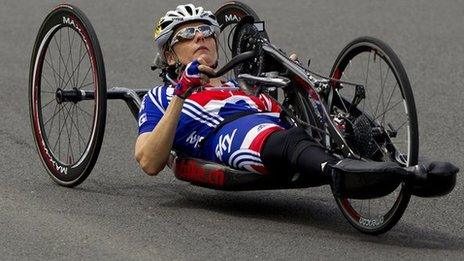Ellie Simmonds: I struggled for motivation after Paralympics
- Published
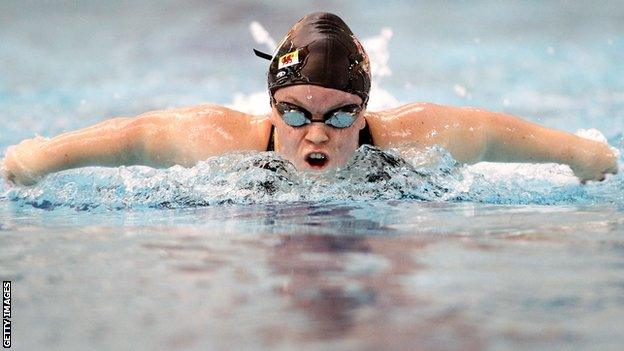
After the parties, parades and premieres were over, Ellie Simmonds' post-London 2012 life felt very different. It felt "flat".
She had experienced months of public adulation after winning four medals, two of them gold, at the London Paralympics, but then doubts began to enter her mind.
How could she ever top winning at a home Games and should she go back to swimming?
"London was the best competition I've ever been in and it was sad when it was over. I was on a real low," says 18-year-old Simmonds, who will compete at the IPC Swimming World Championships in Canada, external next week.
"I had loads of media opportunities that came with winning at a home Games and that kept me excited for a few months, but come Christmas it really hit me hard that it was all over.
"I had to get back to normality, but I felt a bit flat and it was tough to find the motivation for swimming."
Simmonds had rarely been out of the limelight since claiming two record-breaking titles at the age of 13 at the 2008 Beijing Paralympics, external and her mother, Val, was well aware of the dilemma in the teenager's mind.
"One minute she was excited because she was going off to a James Bond premiere or The Great British Bake Off - doing the things she loved - but then she'd be like 'I don't know if I want to swim'," she says.
"It was a roller-coaster because you never knew from one minute to the next what she was thinking. We just had to keep reassuring her.
"We always told her it was OK to stop, even though she was 18 years old. We told her we would support her if she didn't enjoy swimming any more - that's what she had to work out."
Simmonds returned to the pool in December, but soon came to the conclusion that if she were to set her sights on the 2016 Rio Olympics, she could not continue with the regime she had undertaken in Swansea for the last six years.
Instead, after this summer's World Championships, she will move to Loughborough, which is closer to her family home in Aldridge, in the West Midlands.
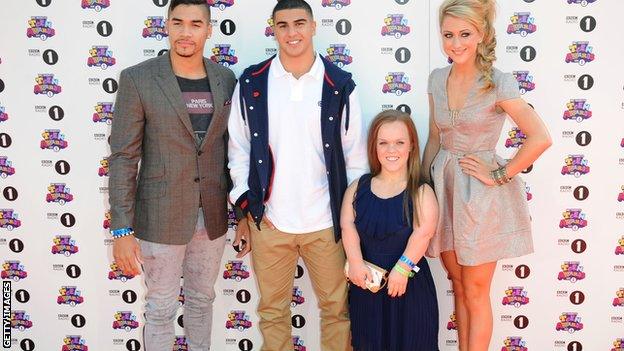
Ellie Simmonds (second right) arrives at the BBC Radio 1 Teen Awards with (left to right) Louis Smith, Adam Gemili and Laura Trott
"I have been in Swansea since I was 12 with my coach Billy Pye and I don't think I would have been able to have the success that I did in Beijing and London without him," she says.
"But I want to be the best athlete I can be and I am going for a complete change to find a new stimulus heading towards Rio."
According to Val Simmonds, this single-minded determination was evident from a young age, although it initially took an unusual form.
"Right from being a toddler, whatever she did it was whole-hearted with total focus and you just had to go with it," she recalls.
"As a youngster horses were her other big passion and we had imaginary horses that lived in the garden for well over a year.
"Every morning before she went to school she insisted on feeding and watering the horses and it didn't matter how late you were running. Eleanor is the same with her school work. When she focuses on that, she shuts everything else out."
Simmonds will resume her studies when she moves to Loughborough and will focus on a psychology A-level, having become fascinated by the subject in recent years.
"I wanted to do something that is nothing to do with swimming, where I can just get away and learn about people," she says.
Simmonds has worked with sports psychologists who helped her come to terms with the level of attention she experienced leading into last year's Paralympics.
Being named as one of the "faces of London 2012" was an honour, but also something that concerned both her family and coach.
Pye, who witnessed Simmonds struggle with sickness brought about by anxiety ahead of her first Paralympic final in Beijing, saw the pressure increase in the months before the Games.
"It was a worrying time because of all the expectation of the British public," he says.
"Everything was being ramped up, with all the papers and television talking about gold medals. There were some times where we wondered how she would cope and we had to protect Ellie."
Simmonds admits that her first reaction after winning 400m freestyle gold in London was relief rather than excitement.
"People expected me to get that gold medal, but luckily pressure drives me forward, otherwise it would just cripple me," she reflects.
Simmonds believes this year's IPC World Championships will be considerably different to last year's Paralympics and, by trying out six events rather than competing in her usual four, she feels the "pressure is off".
She will add the 100m backstroke and 100m breaststroke to her schedule, which already includes the 50m, 100m and 400m freestyle events and the 200m individual medley.
"It is a big experiment to see what it [six events] is like," she says.
"I don't think I'll be able to do six [events] in Rio, but hopefully the new events will help my other ones.
"To win medals [in Canada] would be amazing, but having had three months off after London may have an impact.
You can hear more from Ellie Simmonds, her mother Val and coach Billy Pye on BBC Radio 5 live from 20:30 BST on Thursday, 8 August in a special documentary to preview the IPC World Swimming Championships in Montreal, Canada.
- Published5 July 2013
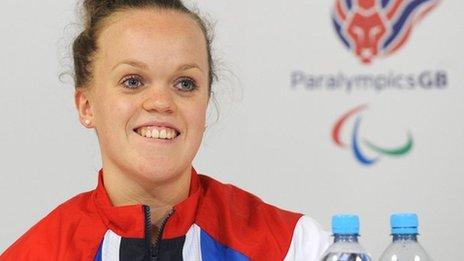
- Published30 April 2013
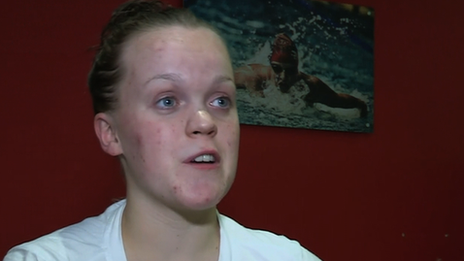
- Published30 April 2013
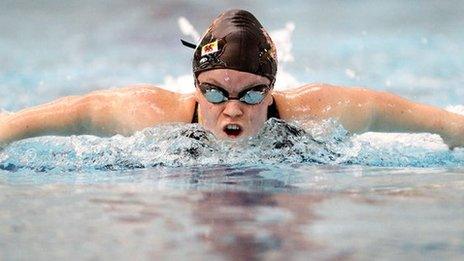
- Published26 April 2013
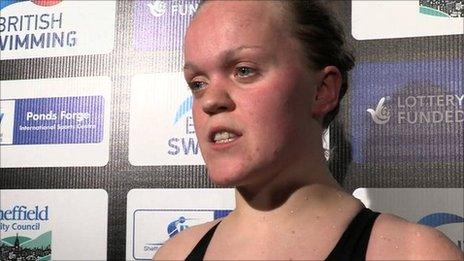
- Published31 August 2016
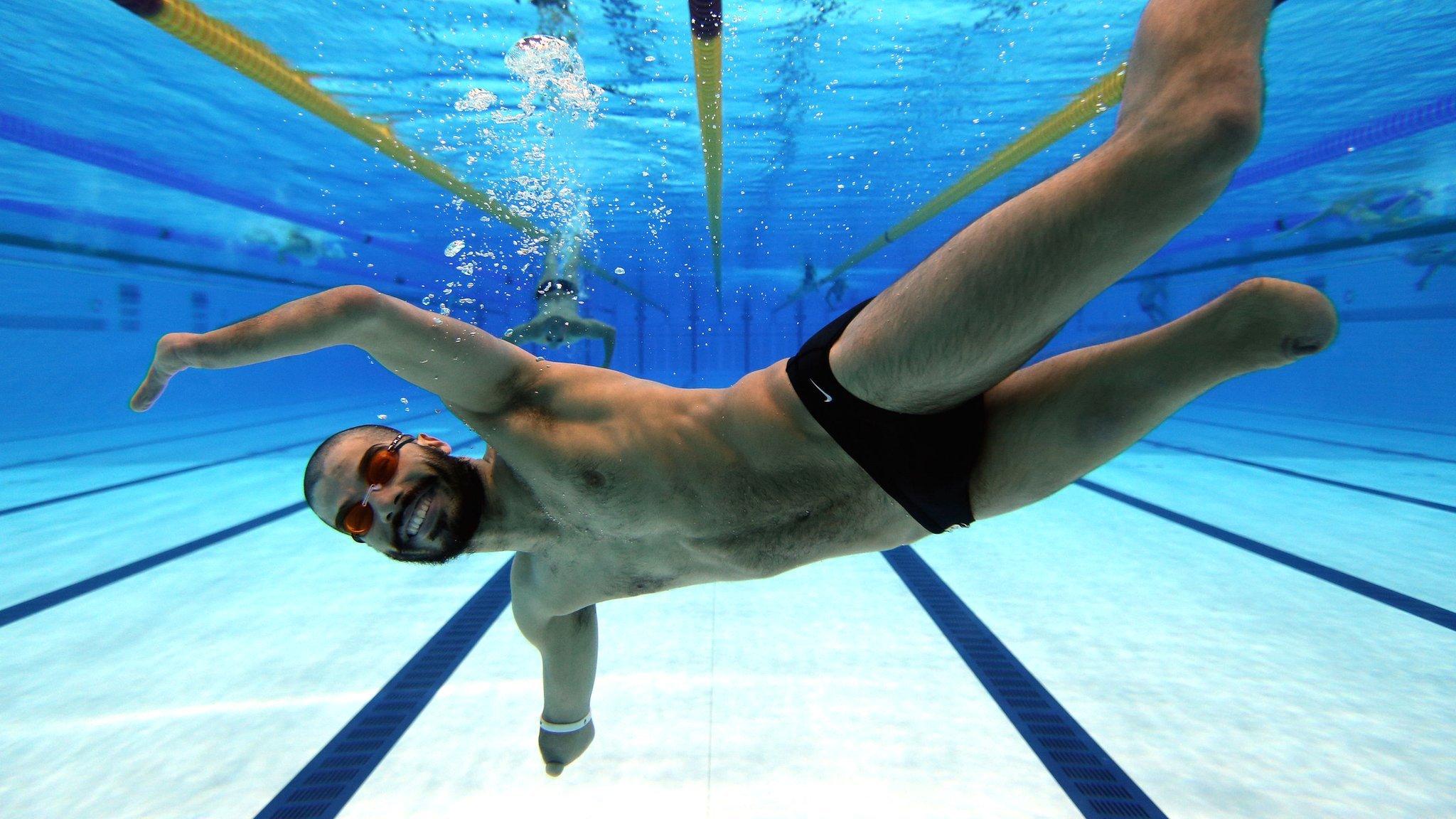
- Published5 September 2016
